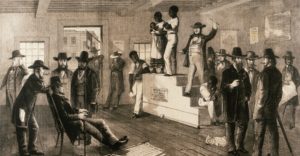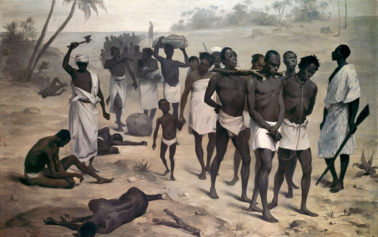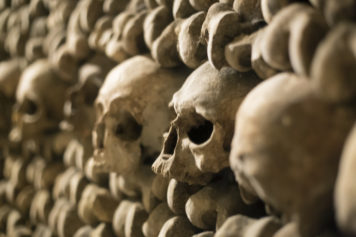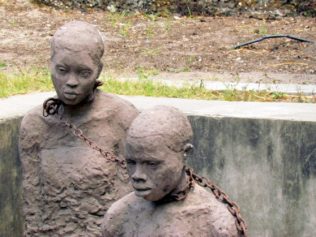When you decide to call an event a “slave auction,” expect some blowback. In Sitka, Alaska, population 9,020, event planners for the city’s annual Alaska Day Festival decided to hold a charity event called a “slavery auction,” and cannot understand what all the fuss is about.
Alaska Day commemorates the acquisition of Alaska by the United States from Russia on October 18, 1867. The Alaska Day Festival website also says the festival “celebrates the diversity of cultures and historical perspectives of our people.”
And what better way to celebrate diversity than making light of slavery? The event reportedly involved an auction in which people bid on volunteers’ services such as cleaning gutters, mowing lawns and other odd jobs.
Wanda Laws, the president of the Anchorage chapter of the NAACP complained about the name for the event, as the Associated Press reported, and requested that the festival “immediately retract and remove” the schedule event, which she calls extremely inflammatory and insensitive.
Laws said she could appreciate that the event was a charity fundraiser but said the name was unacceptable in “light of our country’s history of slavery in relation to African-Americans.”
“The connotation of buying and selling people against their will into slavery — that’s nothing to glorify,” Laws said to the Alaska Dispatch News. “I’d like them to change the name, I’m not asking them to cancel the event.”
The slave auction, however, went on as planned, raising $3,000 for the local fire department, according to the Daily Beast.
The organizers of the event said the name would be changed to “Alaska Day Auction” after the NAACP complaint. Although Laws was pleased with the decision, she could not believe that some participants refused to understand why the name would be offensive, noting “that’s a tone deafness” she has not encountered in quite some time.
“You do not glorify the selling of another human being. You just don’t do that,” she told the Associated Press. “It’s horrific.”
Nonetheless, Rita Ledbetter, a bartender at the Pioneer Bar and event organizer fails to understand what all the ruckus is about.
“It’s a local, local thing, and I don’t know why it’s such a big deal,” she told the Associated Press. “I mean, how long [ago has slavery] been? 150? Almost 200 years? It’s like, ‘C’mon.’”
Ledbetter also said the auction has been held for 31 years without any problems except for a phone complaint each of the past two years, but that no one contacted her directly about the name. Ted Allio, the chairman of the Alaska Day celebration, said the name of the event was “not offensive to anybody around here. We have a lot of different nationalities here in Sitka.” He believed the situation was blown out of proportion, and noted that Russians enslaved Native Americans in Sitka before the U.S. bought Alaska in 1867, but said, “You don’t hear them yelling” about the name.
However, Lawrence SpottedBird, general manager of the Sitka Tribe of Alaska, said calling the event a slavery auction was not alright. SpottedBird added the event has good intentions but affects the Black community.
“I stand with them,” he said. “There should be basically an apology for using that term.”
That the organizers would fail to understand the offensive nature of a slave auction–the buying and selling of kidnapped African people into a living hell of forced labor, rape and torture on the grounds that it happened a long time ago, tells us much about the woeful nature of public education in the U.S. Specifically, Americans are not learning about the history of this nation and the impact of slavery on institutional racism, oppression and wealth inequality in the present day.
Further, this demonstrates how white Americans, if they choose, can live in a bubble in which their racist assumptions are not only normalized, but glorified, and people of color are sidelined and marginalized. So many holidays, from Independence Day to Columbus Day, are commemorated without any thought as to their origins or the consequences of honoring them, or the fact that these holidays represent nightmares for the oppressed people who were colonized, violated and murdered in the process of this so-called celebration. And yet, the historical contributions of Black people are not respected or sanctified, and are otherwise regarded as sideshow items of little relevance.



